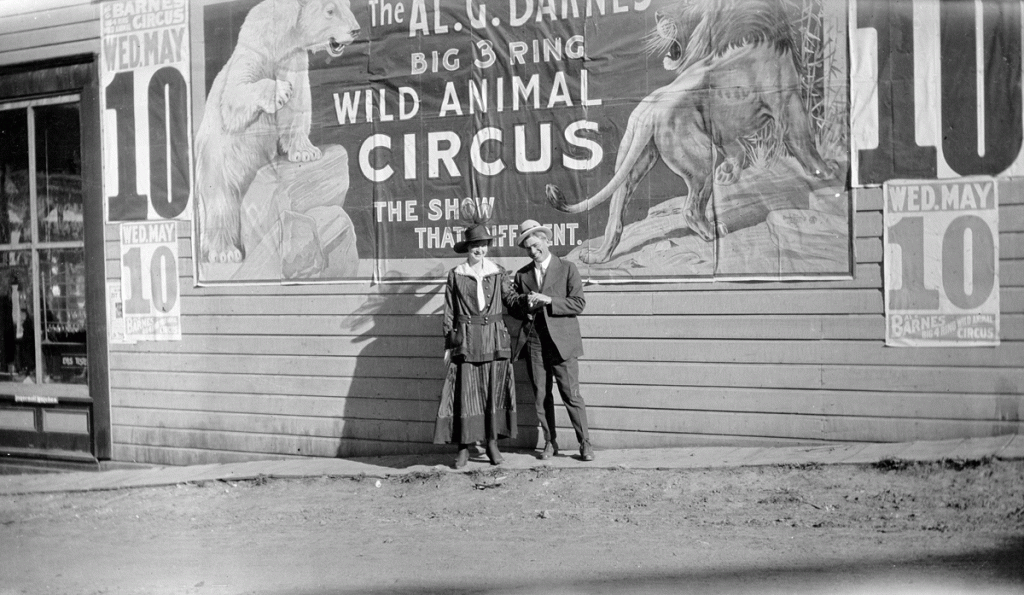This article previousy ran back on July 1, 2015.
One day in late April 1916, a circus agent rolled into Park City, and thus began the weeks-long wait in agonizing anticipation for the circus to come to town.
It was the Al. G. Barnes Big Three Ring Wild Animal Circus, scheduled to arrive on May 10, and according to the agent, “we’ll show you more new, novel, sensational, thrilling and amusing feats than you ever saw under a canvas in your life.”[1] Of course, there was always the chance that a huge snowstorm would ruin the day (like it did the very next year in 1917), but that’s spring in Park City for you.
Before long, the town was plastered in colorful posters and banners, advertising the ferocious lions and bears, trapeze swinging monkeys, and clown pig. The circus’s tagline was “the show that’s different,” and it certainly was. Instead of human performers, the main acts were performed by roughly 600 trained wild and domesticated animals.

Credit: Park City Historical Society & Museum, Pop Jenks Collection
Come Circus Day, Parkites weren’t disappointed. Not only did the weather cooperate, providing the “perfect day to witness it,”[2] but the advertisements lived up to their claims. Pumas jumped through fiery hoops, tigers rode atop elephants, and horses danced and performed military drills. The most spectacular act of the night was when twenty-four African lions entered the ring at once, with only one trainer to keep certain death at bay.[3]
According to the Park Record, the Al. G. Barnes Circus had a connection to Park City beyond just being a stop on the line. The owner, Al. G. Barnes, was a former Park City resident. He came to town in 1897, and stayed for about three years, working at the Jim Pearce stables as a veterinary surgeon. The Park Record claimed that when he left Park City, he took with him a Greyhound dog, a pug dog, a pet pony and a trick mule, a small menagerie that was “really the nucleus of his now million dollar circus.”[4] Whether or not this was true, it made for a good story.
This photograph is one of the few we have of J. E. Jenkins (a.k.a. Pop Jenks); it was taken in 1916, just a few years after he arrived in Park City. As a photographer, he was usually behind the camera lens. However, in this rare portrait, he smiles for the camera with a woman by his side. Who exactly this woman is, however, is up for debate. She was originally thought to be Carrie Vivian Hodgson (the backdrop for the photograph is the side of Hodgson’s Jewelry store at 363 Main Street), but it was then speculated that she might actually be Dollie (Barlow) Barnes, wife of Al. G. Barnes himself. Comparing photographs of the two women offers no solid answer, but we hope to one day solve this mystery.